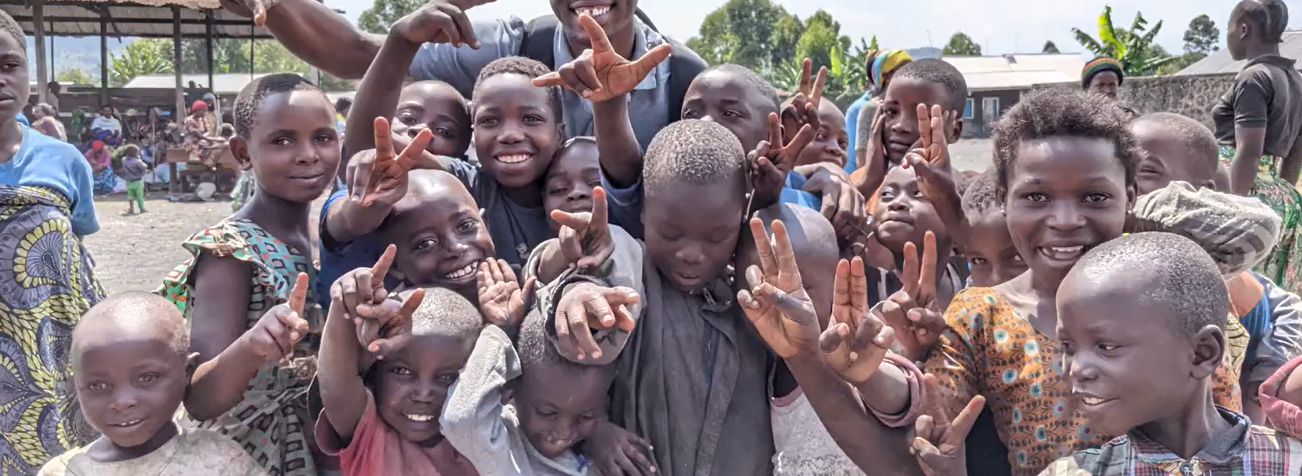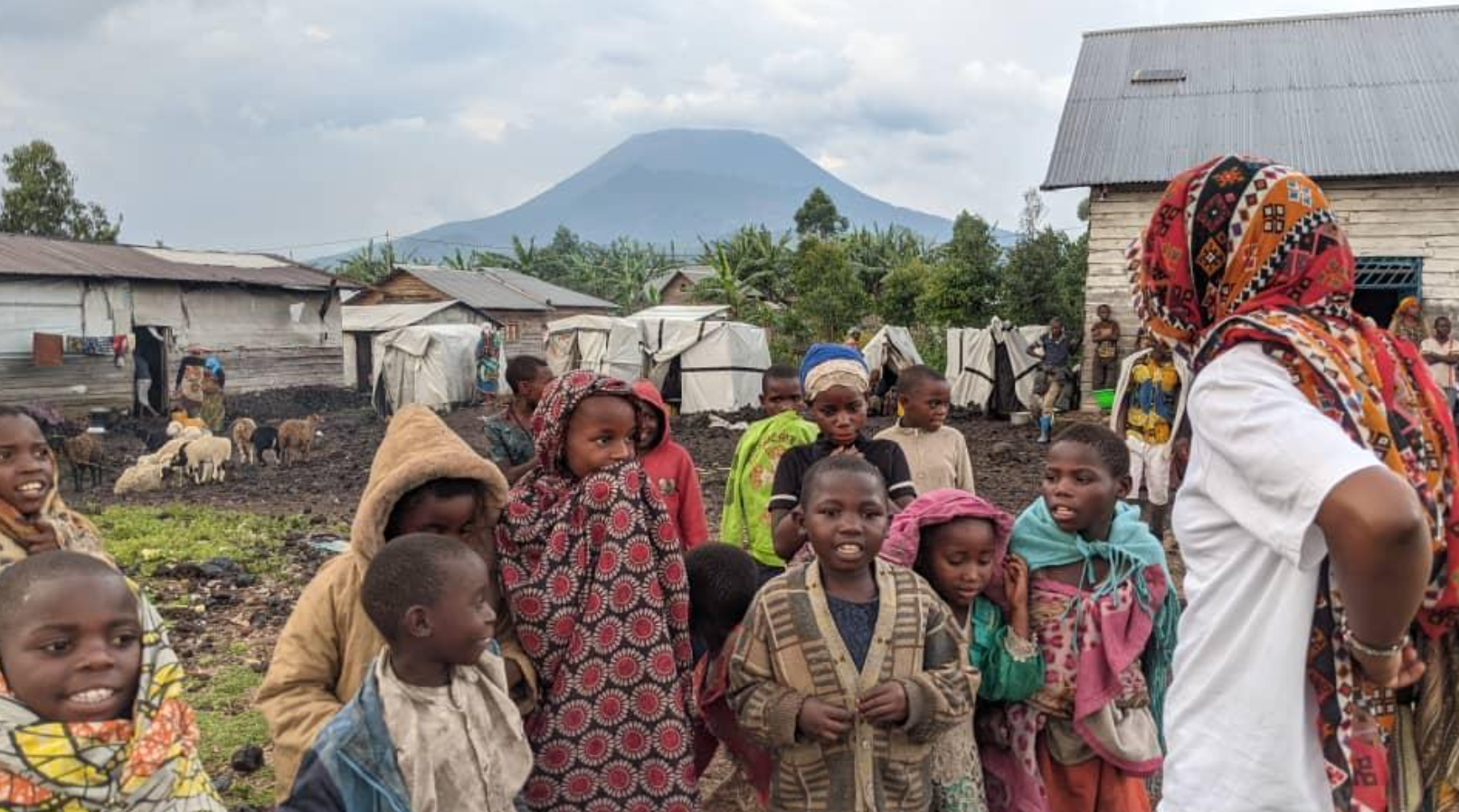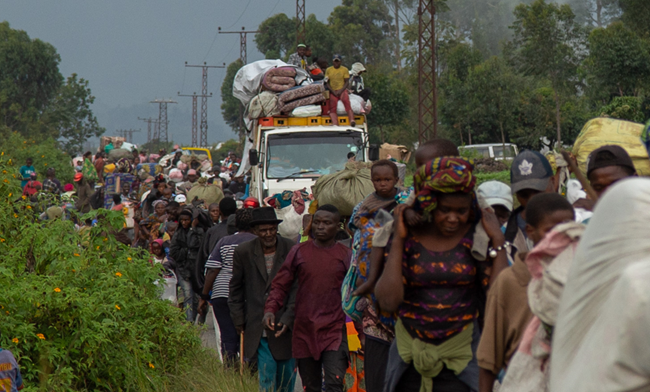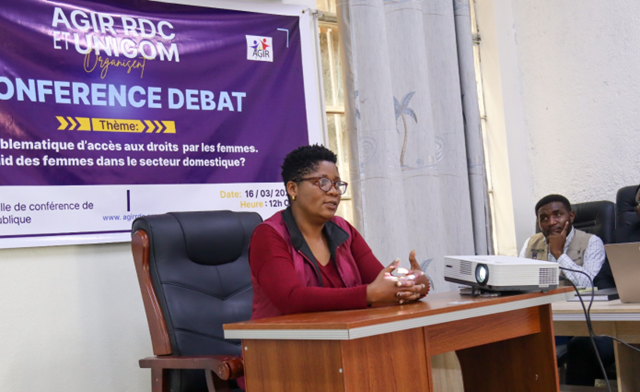
As we work with our partners…
Eastern Congo has lived with armed violence, economic hardship, natural disasters and internal displacements for decades. There is little government support or viable local infrastructure — and the people cope with ongoing crises caused by armed conflicts and natural disasters. People lose their homes and families at a moment’s notice. Internal displacement [IDP] camps appear organically where displaced people collect.
People want to go home. Many can’t return in peace, so they remain internally displaced. For at least two generations people have been living on the outskirts of Goma. Many were never educated and have no viable opportunity to learn skills that will help them survive in an urban setting.
Our partners design their programs to help the most vulnerable people. AGIR RDC identifies and accompanies people so that they can support themselves economically and reenter society with dignity.
The field work we present here includes a few of the many themes that appear in AGIR’s work. Treating trauma through deep listening and personalized psychological care is crucial, so AGIR’s psychosocial assistants play an important role across programs. Mental health is the starting point. AGIR then offers training in vocational and life skills both in programs at the IDP camps and in those for domestic workers.
AGIR works to build capacity — to make people stronger. Twa Weza Shinda means “We will succeed again.”
Please read, watch and share this important work…

IDP Crisis in Eastern Congo.
Our partners are first responders, working with internally displaced people [IDPs] to reconnect families, address trauma, and teach new skills to help rebuild their lives.
Photo credit: AGIR RDC
Women’s rights
Domestic workers are some of the most vulnerable people in DR Congo.
Our partners empower domestic workers through access to legal services, provide education, and work to enact laws to protect them
Photo credit: AGIR RDC


